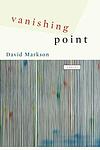David Markson
David Markson was an American author known for his unconventional narrative structure and experimental use of language. His work often explores themes of art, literature, and history, and is characterized by a collage-like style. Some of his notable books include 'Wittgenstein's Mistress,' 'Reader's Block,' and 'The Last Novel.' Markson's writing has been praised for its intellectual depth and innovation.
Books
This list of books are ONLY the books that have been ranked on the lists that are aggregated on this site. This is not a comprehensive list of all books by this author.
-
1. Wittgenstein's Mistress
The novel is a stream-of-consciousness narrative from the perspective of a woman who believes she is the last human on earth. She shares her thoughts, memories, and experiences in a non-linear and often confusing manner. The narrative is filled with cultural and historical references, creating a haunting and profound exploration of loneliness, memory, and the human condition.
-
2. Vanishing Point
"Vanishing Point" is a novel that defies traditional narrative structure, presenting a stream-of-consciousness collage of anecdotes, quotes, biographical sketches, and philosophical musings. The book, devoid of a conventional plot, follows an unnamed protagonist, referred to as "Author," who is compiling a manuscript of historical and literary trivia, personal reflections, and a medley of obscure facts. As the protagonist grapples with themes of mortality, art, and the act of writing itself, the novel becomes a meditation on the human condition and the elusive nature of meaning in a seemingly disconnected world. The fragmented style challenges readers to piece together coherence from the disparate elements, mirroring the protagonist's own quest for understanding and significance.
-
3. The Last Novel
This book is an unconventional narrative that eschews traditional plot and character development, instead presenting a stream of anecdotes, quotes, and musings on mortality, art, and literature. The protagonist, an elderly author, contemplates his life and the looming presence of death as he works on what he believes will be his final novel. Through a collage of fragmented thoughts and intellectual references, the text explores themes of creativity, the challenges of writing, and the solitary nature of the artistic endeavor, all while blurring the lines between the author's reality and the literary world he inhabits.


